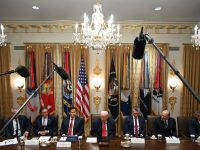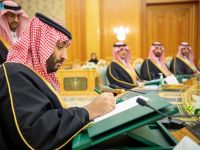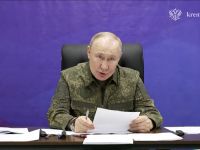New projects in the GCC – already at a record high – will continue to grow by up to 50 per cent in 2006, according to industry leaders speaking at a MEED forum on project finance in the Middle East.
The increasing role of the private sector in the infrastructure of GCC countries, as well as a rapid rise in the number of privatisations, has seen the number of projects grow exponentially.
The Middle East has the second largest share of project finance in the world – an industry worth $100 to 150 billion globally – with the region achieving critical mass, especially in the fields of power and water, and oil and gas.
Tony Boon, director of project finance for Dolphin Energy, said: “This region is seeing massive investment requirement alongside liquidity growth and a broad range of investors and lenders. “We are seeing the traditional limited recourse financial model will evolve rapidly. We have seen convertible sukuk and will see the development of other mezzanine securities as the capital markets develop around the region.”
Dolphin Energy has the largest financing deal in the UAE, with the $3.5 billion deal in September to fund the construction of its Bridge 1.
Despite the increased liquidity available in the market, Boon believes that project finance will continue to play a major part in financing options. “It is prudent to spread the risk across the types of finance available; in addition, banks providing finance can also validate the investment decision.”
With exceptionally high levels of liquidity being poured into new investment into infrastructure is Qatar, which is leveraging its wealth through high levels of natural gas into non-energy projects as well.
Steve Martin, head of corporate communications and marketing for Qatar Financial Centre Authority, said: “Qatar has massive natural wealth, thanks in part to 900 trillion cubic feet of gas. “Currently, there are more than $130 billion worth of projects on the table, driven by the government’s initiative to promote public and private sector co-operation.”
QFC are supporting MEED’s headline conference Middle East Project Finance, to be held in Doha on February 28 – March 1.
The forum, previously held in Bahrain, comes at a time when Qatar’s economy is particularly buoyant. The country’s GDP is thought to have expanded by 27 per cent in nominal terms, and private sector growth is being driven by the increased investment of the government on infrastructure projects.
Qatar, while the GCC’s third largest construction market, is witnessing the fastest growth. Doha has seen a wave of residential and commercial projects from investors who have recognised the potential economic surge coming from the country’s vast gas reserves.
Ian Cogswell, director of natural reserves, corporate finance division, Mizuho Corporate Bank, said: “We are moving away from the mega liquefied natural gas (LNG) projects of the last three years and moving into a diverse range of projects that take advantage of the cost benefits of the region.
“We will also see a significant number of refinancing deals from projects that were launched in the early 2000s, as they move from construction to operational phase. “Increased liquidity in the region means that financial institutions will have to diversify their income streams on projects and be more innovative in their product offering.”
Current projects in the oil and gas sector in Qatar currently amount to more than $60billion, including Ras Laffan’s RasGas Onshore Expansion Project Trains, which are expected to produce 15.6 million tons of LNG per year.
Fifteen per cent of the world's total proven gas reserves are located in Qatar’s North fields, the third largest gas field in the world. According to the OPEC's Monthly Oil Market Report, Qatar's production of oil has risen to 810,000 barrels per day.
Meanwhile, opportunities abound through the rest of the region. In the UAE, growth is being led by Abu Dhabi, where the mobilisation of the private sector – which currently contributes 40 per cent of Abu Dhabi’s economy – will result in an upward curve in GDP.
Conference chairman Edmund O’Sullivan said: “Abu Dhabi contributes 60 per cent of the UAE’s GDP: with major projects in the UAE amounting to a total value of well over $200 billion across industries, Abu Dhabi is establishing itself as one of the world’s major economic centres.”
Moving to Oman, the value of projects currently on stream in the Sultanate is estimated at $30 billion. O’Sullivan said: “Oman is really forging ahead in project finance and privatisation, largely funded by commercial loans, which represent 70 per cent of total commitments. Tenors have lengthened, there are more banks involved, and pricing is very competitive.”
However, O’Sullivan urged some caution, stating that some industry analysts have predicted a slow down in the rate of growth – currently reaching 25 per cent - over the next couple of years.
He said: “Markets are cyclical, and we have been through downturns in this market. There has to be a slowdown, though projects will continue to be economically viable due to regional factors such as the price of oil.”
Middle East Project Finance will be held under the patronage of His Highness Sheikh Mohammed Al Thani, Minister of Economy and Commerce in Qatar. The minister will also give a keynote speech at the event, which will be held Febriary 28 to March 1 at The Ritz-Carlton, Doha.
The platinum sponsor is HSBC; gold sponsors are Commercial Bank of Qatar and Qatar Islamic Bank; other sponsors are Calyon, Mizuho Corporate Bank, Gulf International Bank, and S&P.
MEED Conferences is part of the leading information brand in the Middle East working to provide delegates with the very latest business sensitive information. Over the past 10 years, MEED Conferences has organised events attended by senior government officials and thousands of international business people. The conference series is aimed at companies active or seeking business in the markets of the Middle East. MEED is well established as the source of strategic and accurate regional information placing it in a unique position to bring together high-calibre speakers.
© 2006 Al Bawaba (www.albawaba.com)







